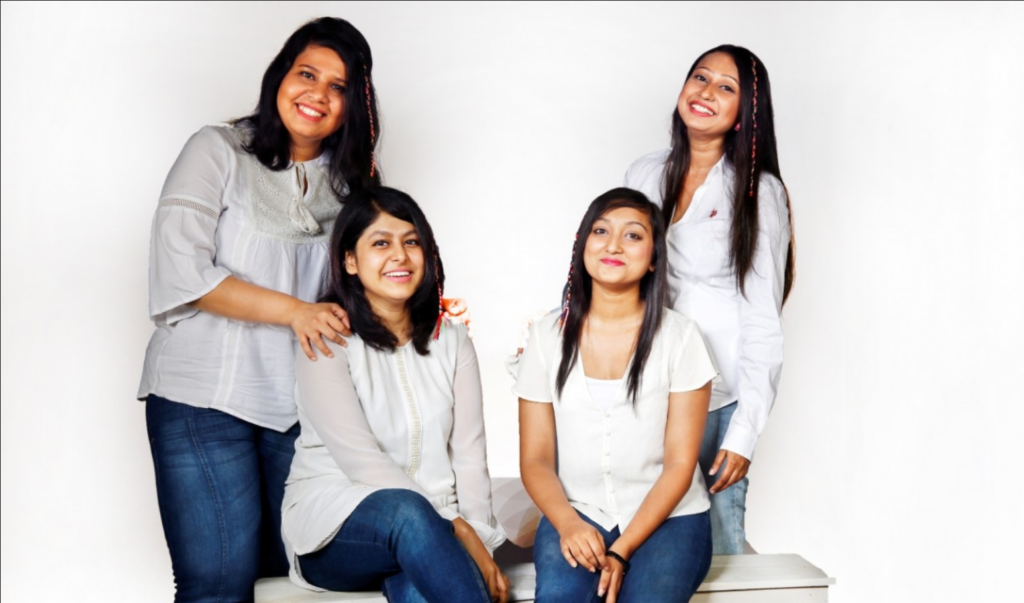Laisfita, an exclusively female band hailing from Bangladesh, is making a significant impact on the country’s pop music scene. Recognized as the “first-ever professionally managed girl band,” Laisfita aims to transcend national boundaries by collaborating with regional and international musicians.
The group, consisting of Antora Rahman, Mustarin Ahmed Sheetal, Shunanda Sharmin, and Ferdousi Moumita, emerged as the winners of Bangladesh’s inaugural female music reality show, Sunsilk Divas – Season 1. Their debut track, “Swapno Ekhon Amar Haatey,” has garnered acclaim both domestically and internationally. Distributed by ArtistSpread, a collaboration between Sony DADC India and Creinse Limited Bangladesh, and composed by renowned Bangladeshi singer Hridoy Khan, the lively song celebrates the power of dreams within one’s grasp.

Coming from diverse backgrounds, the four-member band is reportedly gearing up to contribute to a Bollywood music album, release an international collaboration featuring a prominent reggae artist, perform live alongside an iconic international female pop star, and participate in live events across Bangladesh.
The name “Laisfita” derives from the Bangladeshi term for ribbons, which holds significance in the realm of girls’ hair styling. In an email exchange with indianexpress.com, the band, all in their early 20s, expressed their love for Bangladeshi music, highlighted their camaraderie, and shared aspirations of collaborating with global icons like Indian musician A R Rahman.

Reflecting on their journey from participating in the Bangladeshi music reality show to forming their own band, member Ferdousi emphasized the transformative experience of Sunsilk Divas. The competition not only brought challenges but also forged new friendships among individuals sharing a passion for music. The band members consider themselves fortunate to have embarked on this journey, which has been a tremendous learning experience.
When questioned about the choice of the name “Laisfita,” Antora explained its connection to mainstream hair styling in Bangladesh. The term refers to a colorful cloth strip used in braiding hair, symbolizing the band’s representation of young women’s aspirations deeply rooted in Bangladeshi life, exuding playfulness and energy.

Describing the band’s camaraderie, Antora emphasized the initial challenge of merging diverse musical tastes and backgrounds. The journey required synchronization, mutual understanding, and a willingness to sacrifice for one another, transitioning from a competitive stage to a collaborative band focused on supporting each other.
Regarding the Bangladeshi music scene for Indian audiences, Sheetal highlighted the country’s deep-rooted love for music. Bangladesh’s musical evolution, especially during the 1971 war of independence, used music as a medium to convey the struggle for freedom. She expressed a desire to showcase the diversity of Bangladeshi music beyond popular genres like Rabindra Sangeet and Baul, with Laisfita aiming to make a significant impact on the global stage.

Shunanda added that while Bangladesh has seen success in pop/rock music locally and to some extent in India, the global recognition is still lacking. Laisfita aims to change this narrative and hopes to inspire more female musicians to pursue careers in music, challenging societal mindsets that may hinder their ambitions.
Each band member drew inspiration from different sources, with a common admiration for the Spice Girls as a group. They also expressed a collective desire to collaborate with A R Rahman, recognizing him as a musical genius who has represented South Asia globally.
In the context of the evolving online music scene, Moumita acknowledged the transformative impact of the internet on music consumption. While the convenience of online platforms has made music accessible worldwide, she stressed the importance of maintaining quality amid the vast array of available tracks. Laisfita remains committed to delivering high-quality music that transcends language barriers and resonates with a global audience.
